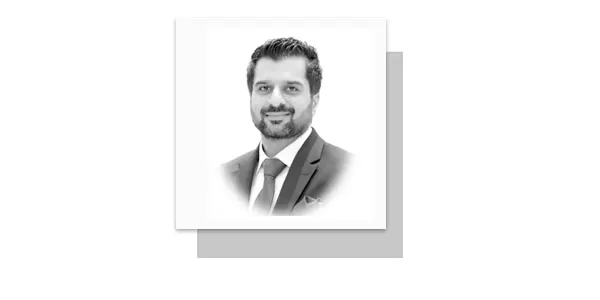EARTH is the sole home for humans, who should have equal access to opportunities and resources.
However, the development of nation-states and the segregation of communities has led to a world where inequality and disparity deny people equal opportunities.
Global inequality remains one of the most pressing challenges of the 21st century, shaping economic, political and social landscapes.
While some progress has been made in reducing extreme poverty, disparities in wealth, education, healthcare and political representation continue to widen.
According to the World Inequality Lab (WIL), the top 10% of global earners receive 52% of the world’s income, while the bottom 50% share only 8%.
This imbalance is not only a moral concern but also a structural obstacle to sustainable development and global stability.
The accumulation of wealth in the hands of a few has led to a growing divide between high-income and low-income groups. The International Monetary Fund (IMF) highlights that in the past 40 years, real wages for the bottom 50% in many advanced economies have stagnated, while the wealth of the top 1% has surged. In Europe, the top 10% of earners control 36% of the national income, whereas in Africa, the figure rises to 55%, reflecting historical patterns of exploitation and limited wealth redistribution. Tax policies, financial deregulation, and corporate monopolies further exacerbate these disparities, creating economic systems that benefit the elite at the expense of the majority.
Education is often regarded as the great equalizer, yet it remains one of the most significant drivers of inequality. In many developing countries, access to quality education is limited by economic constraints, leading to cycles of poverty. The UNESCO Institute for Statistics reports that nearly 258 million children and adolescents worldwide are out of school, with sub-Saharan Africa accounting for over 30% of these cases. Even in developed nations, disparities persist. In the U.S., students from the top income quartile are nearly eight times more likely to earn a college degree than those from the lowest quartile. The prohibitive cost of higher education and unequal access to top institutions further solidify economic divides.
Economic inequality often translates into political inequality. In many democracies, campaign financing and lobbying enable wealthy individuals and corporations to exert disproportionate influence on policy decisions. Studies by the Pew Research Center indicate that policies in the U.S. overwhelmingly reflect the interests of the affluent rather than the majority. Moreover, autocratic regimes exacerbate the problem by consolidating wealth and power within ruling elites. Countries such as Russia and Venezuela have experienced a rise in economic disparity due to crony capitalism, where government resources are allocated based on political loyalty rather than public welfare.
Additionally, gender inequality continues to pervade economies and societies worldwide. The World Economic Forum’s 2023 Global Gender Gap Report estimates that at the current rate of progress, it will take 132 years to achieve full gender parity. Women, particularly in developing regions, face significant barriers to employment, education and political representation. For instance, in South Asia, women perform 80% of unpaid labour, limiting their economic independence. Even in high-income countries, the gender pay gap persists, with women earning on average 16% less than men for the same work. Addressing these disparities is essential for fostering inclusive economic growth.
Agricultural dependence and land ownership patterns further entrench inequality. In many parts of Africa and South Asia, feudal landholding systems allow a small elite to control vast agricultural resources, leaving small-scale farmers struggling with low productivity and financial insecurity. Furthermore, international sanctions, while intended to pressure authoritarian regimes, often disproportionately affect ordinary citizens. The Venezuelan crisis, exacerbated by U.S. sanctions, has led to hyperinflation and food shortages, disproportionately harming the poor. War and conflict also deepen inequality. The World Bank estimates that by 2030, nearly 60% of the world’s poor will live in conflict-affected areas. Syria and Yemen exemplify how prolonged conflicts erode economies, destroy infrastructure and leave vulnerable populations with limited access to education and healthcare.
Tackling global inequality needs a multifaceted strategy. Sweden and Denmark’s success in curbing inequality is attributed to their high wealth taxes and robust social services. Consequently, progressive taxes could lessen worldwide inequality. Higher government spending on education, especially in low-income nations, has successfully reduced poverty cycles. Rwanda’s free primary education has led to a significant rise in literacy. Higher literacy rates foster opportunity, decrease inequality and boost inclusivity. Enacting equal pay laws and parental leave, as seen in Iceland, has demonstrably reduced the gender pay gap in those countries. Gender equality is now more important than ever. To cultivate gender equality, governments should therefore implement laws to reduce the gender gap.
Regulations on corporate monopolies and tax evasion should be strengthened to prevent wealth concentration among the elite. Reforms must be implemented fairly and unbiasedly, with no special treatment for elites. This will greatly reduce global inequality. National policies aligned with UN SDGs could create a structure for equitable growth. Achieving the SDGs will build a fairer world by tackling inequality’s root causes and improving opportunity and wealth distribution. These reforms are vital to prevent inequality from undermining democracy, economic progress and social cohesion. Although economic growth has helped millions escape poverty, the unchecked rise in inequality jeopardizes global stability and prosperity. A world of inequality breeds chaos, destruction and conflict. Now’s the time for wisdom; let’s build a world where equality is the norm. Though challenging, this goal is essential for a peaceful world.
—The writer is an educationist and a Commoner from 44th Common, based in Sargodha.
(waqarhassancsp@gmail.com)










